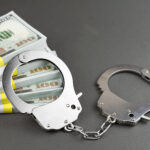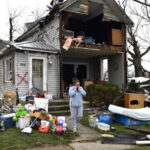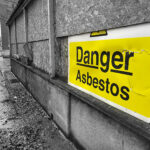After the destruction of approximately 50 homes and the tragic loss of life in San Bruno, Calif., caused by the September 9 explosion, it might be wise for insurance agents to warn their customers about potential scam artists and unlicensed public adjusters who prey on disaster victims, state Insurance Commissioner Steve Poizner said.
During past catastrophes, unlicensed public adjusters have tried to take advantage of disaster survivors. Fire victims should call the CDI at 800-927-HELP to check the license status before hiring a public adjuster.
Survivors should be on the lookout for several common types of fraud that occurs after a disaster: price gouging; offers of debris removal; and fraudulent charitable solicitations. It is important that victims keep a diligent lookout for predators playing on the emotions of those stricken by disaster. If fraudulent activity is suspected, they are being asked to contact the CDI immediately.
After a disaster, sales people often go door-to-door, canvassing neighborhoods to generate new business. While many of these people are honest and reputable, some are not. Victims can:
· Call the Contractors State License Board at 800-321-2752 or visit their Web site at www.cslb.ca.gov to check a contractor’s license number or get further information on home and property repairs.
· Deal only with licensed contractors. Ask to see the contractor’s “pocket license,” together with other identification. If the person claims to be representing a contractor, but can’t show you a contractor’s license or home improvement salesperson registration card, call the contractor and find out if the person is authorized to act on the contractor’s behalf.
· Do not do business with a contractor who does not carry the appropriate insurance coverage. If the contractor is not insured, you may be liable for accidents that occur on your property. Ask the contractor if he/she carries general liability and workers’ compensation insurance. Request a certificate of insurance (COI) from the contractor that shows the name of the insurance company, policy number and policy limits the contractor carries. Contact the insurance company directly to verify information on the COI.
· Don’t rush into signing a contract. Collect business cards, interview several contractors, and request multiple bids for comparison. Make sure to read the fine print on all estimates and contracts.
· Obtain estimates from at least three contractors before deciding which to hire.
· Beware of building contractors that encourage you to spend a lot of money on temporary repairs.
· Hire local, licensed contractors when possible, as it is easier to deal with a local contractor if problems develop. However, since it may not always be possible to deal with local contractors in the aftermath of a disaster, be particularly careful to thoroughly check references for out-of-town contractors.
· Get everything the contractor discusses in writing. Also, if changes or modifications occur in the contract terms, they should be acknowledged by all parties in writing.
· Never sign a contract with blanks that have not been filled in. Unscrupulous contractors may fill in the blanks later with unacceptable terms.
· Never pay a contractor for the entire project in advance or before the work is completed. California law requires that the amount of the down payment for any one improvement project, other than for construction of a swimming pool, may not exceed $1,000 or 10% of the contract price, excluding finance charges, whichever is less.
· Be especially suspicious of door-to-door sales people who make unrealistically low estimates, refuse to leave a contract overnight, or try to sell their services by playing on your emotions.
· Federal law requires a three-day “cooling off” period for unsolicited door-to-door sales of more than $25.00.
Was this article valuable?
Here are more articles you may enjoy.

 California Chiropractor Sentenced to 54 Years for $150M Workers’ Comp Scheme
California Chiropractor Sentenced to 54 Years for $150M Workers’ Comp Scheme  Gallagher: Global Insured Natural Disaster Claims Again Dominated by Severe U.S. Storms
Gallagher: Global Insured Natural Disaster Claims Again Dominated by Severe U.S. Storms  BNSF Says It Didn’t Know About Asbestos That’s Killed Hundreds in Montana Town
BNSF Says It Didn’t Know About Asbestos That’s Killed Hundreds in Montana Town  DraftKings Sued Over ‘Risk-Free’ Bets That Were Anything But
DraftKings Sued Over ‘Risk-Free’ Bets That Were Anything But 